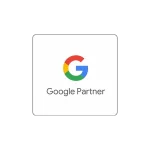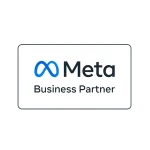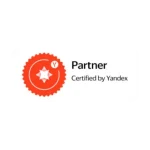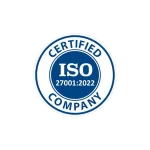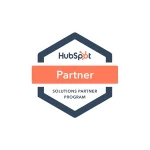Last Updated on 1 year by Gülenber Han
Off-page SEO is concerned with anything that does not take place immediately on your website. On-page SEO refers to optimizing your website and covers things like site structure, content, and performance optimizations. Link building and local SEO are examples of off-page SEO. For these studies, it is sufficient to work with an SEO agency.
What is Off-Page SEO?

Off-page SEO refers to the efforts you perform outside of your website to influence your search engine ranking. When calculating a page’s rating, search engines use a variety of variables. While some of the variables are dependent on website content and performance, Google also obtains information about your website from sources other than your domain. That is why off-page SEO is so important.
One of the top-ranking variables is link development, which is an efficient off-page SEO approach. This is because Google relies on PageRank, an algorithm that evaluates the quantity and quality of a page’s backlinks. An off-page SEO strategy complements your website efforts by working to increase your domain’s reputation, relevance, credibility, and authority.
Why does Off-Page SEO matter?
While search algorithms and ranking variables are continually evolving, the SEO industry generally agrees that the relevance, trustworthiness, and authority that excellent off-page SEO provides a website continues to play a significant influence in a page’s ability to rank.
While we don’t know the exact algorithm Google employs to rank content, statistics from Search Engine Ranking Criteria research indicate that off-site SEO-related factors likely account for more than half of the ranking factor weight.
As a result, Google ranks websites based on over 200 variables. It is tough to rank just on the basis of content; this is where off-page SEO comes in. By informing Google what other people think about you and your website, you are assisting it in determining how relevant your content is to users. This is why obtaining connections from high-quality websites is critical.
Off-Page vs. On-Page SEO vs. Technical SEO

All SEO strategies are divided into three categories: on-page SEO, off-page SEO, and technical SEO.
Off-page SEO refers to efforts that take place away from or ‘behind the scenes’ of your website. Off-page SEO encompasses any SEO actions that occur outside of the limits of the website. Off-page SEO is king, but there are many other things you can do off the website to help it rank higher, such as plain old PR, social media marketing, and so on.
On-page SEO refers to the strategies you employ on your website to assist search engines in better comprehending and ranking your content. These all come under on-page SEO, which includes producing content, improving title tags, image optimization, and other techniques. On-page SEO refers to SEO tactics that are implemented directly on the website. The optimized site content allows search engine robots, which scan websites 24 hours a day, to comprehend how useful your website’s content is for consumers and compare it to rival websites. This category includes text content, images, meta tags, and links.
Technical SEO refers to operations that have a direct influence on search engine indexing and crawling of your site. Site performance improvement, structured data, and other examples are provided. Technical SEO tries to improve the site’s crawling and indexing by Google algorithms. It includes enhancing the speed, structure, URL canonicalization, and other aspects.
| Off-Page SEO | On-Page SEO | Technical SEO |
| Link building | Site content | Site speed |
| Social media | H tag optimization | Canonicalization |
| Reviews | Image optimization | Hreflang |
| Content marketing | Title tag and meta tag optimization | Structured data |
| Podcasts | Internal linking | XML Sitemaps |
Trying to decide between off-page, on-page, and technical SEO is like deciding whether to build the foundation, the walls, or the roof. There is no other option: if you want to increase your search engine rating, you must work on all of them – no exceptions!
What are the Off-Page SEO Techniques?
Off-page SEO refers to efforts that may be carried out beyond the confines of your website. The following are the most essential off-page SEO techniques:
-
Off-Page SEO Tactic 1: Link Building
Given Google’s algorithm, link building is still an important component of any off-page SEO plan. However, it is critical to learn how to develop links in the most effective way for your website and specialty.
Getting backlinks from high-authority websites helps position your site as an authority. These high authority connections function similarly to a ‘vote of trust’ from one site to another.
The primary goal of link building should be to get high-quality links from authoritative websites. Always prioritize quality above quantity.
Closing the link gap between your site and your rivals’ sites should be part of your link-building plan. If they are gaining backlinks from high authority sites that aren’t connecting to you, you may be losing out on some quality traffic. Here are the three most important aspects to consider when it comes to link development.
1.1 Authority Score
Hopefully, you realize why the authority of connections is so crucial by now. Semrush’s Authority Score metric may be used to determine the authority of any website. But what is AS precisely, and what does it measure?
The Authority Score is a compound domain score that rates a website’s overall quality and tells you how influential a backlink from that site may be. The following Semrush data is used to calculate the score:
- The domain’s backlink quantity and quality (authority).
- The number of referring domains and IP addresses.
- Nofollow vs. follow links
- Traffic from organic search
- The total number of users
1.2 Unique Domains
The number of connecting root domains that lead to your site is an important statistic of link-building success, even more so than the number of backlinks. Several studies have found a strong association between linked domains and higher rankings. As part of your plan, domain diversity should be a significant priority.
1.3 Topical Relevance
Always try to get links from sites that are topically related to yours. For example, if you operate a travel website, you should strive for the majority of your connections to originate from other travel websites, such as bloggers, online publishers, tourist boards, and so on. It’s logical.
However, some links from other subjects are acceptable if they are natural and make sense; try for the majority to be tightly thematically connected.
-
Off-Page SEO Tactic 2: Brand Building
It is a well-known fact that Google rewards brands. Also, brand development efforts should be an important aspect of your off-page SEO approach alongside your overall SEO and marketing strategy. And once again, it all comes down to establishing your online authority in the eyes of users and search engines alike. But how does the brand building fit into your SEO strategy and what are the success criteria?
2.1 Brand Searches
Increased brand searches are one of the most important indicators that you are improving your brand. This may include searches for your brand name, products, or domains.
-
Off-Page SEO Tactic 3: Content Marketing
When we think of content marketing, we often think of it solely as an on-page SEO approach – that is, the production and publication of content for your website.
However, when viewed holistically, content marketing encompasses both on-page and off-page techniques. Publishing outstanding content on your website is simply one aspect of content marketing; whatever content you generate and publish in any place on the internet falls under the category of content marketing. Content marketing happens when you write a guest post or create an infographic linked to a top post.
Creating good, engaging assets can help you market your content and inspire others to share it. Typical content marketing strategies to increase off-page signals include:
- Blogs
- Infographics
- Polls, surveys, and research papers
- eBooks and whitepapers
Content marketing also complements other off-page strategies such as link building, social media, and public relations.
-
Off-Page SEO Tactic 4: PR
For a long time, PR and SEO were considered separate marketing disciplines, but in recent years the boundaries have blurred and the two have merged. Because it is the ideal approach to generating authority links at scale, digital PR has quickly become the link-building technique of choice for many SEOs. You may employ public relations strategies to promote a wonderful narrative and its associated linkable assets, and as a consequence, you can gain a large number of links.
PR adds to off-page SEO signals in ways other than merely assisting in link building. A good public relations effort can also:
- Increase brand awareness and brand searches as a consequence.
- Get your company in front of your target demographic and get them talking about it.
- Increases referral traffic.
- It establishes you as a thought leader in your sector and aids in the development of trust signals.
-
Off-Page SEO Tactic 5: Local SEO
While local SEO is a whole discipline in and of itself, certain parts are critical off-page SEO methods, the most important of which are Google My Business and citations.
5.1 GMB (Google My Bussiness)
Google My Business is critical to the online presence of almost any local business. Still, it’s easy to overlook the fact that optimizing your website and ranking it in the map pack is an example of off-page SEO.
GMB is not your website, and keep in mind that any effort focused on anything other than your site is considered off-page.
According to recent reports, 46 percent of all Google searches are for local information, and 4 out of 5 customers use search engines to find local information. If your company doesn’t come out in the local GMB results, it’s a simple fact that one of your competitors will.
5.2 Citations
A citation is an internet mention of your company that often includes your company’s NAP (name, address, and phone number). Consider these to be business listings.
If you are a local business trying to rank for locally-focused search queries on the SERPs or map pack, citations are essential.
However, consistency is one of the keys to citation success. Citations that are inconsistent show a lack of coherence. You must take the time to double-check that all of your NAP references are correct.
-
Off-Page SEO Tactic 6: Social Media
Social media is used by 93 percent of regular Internet users. Social media plays an important role in how we use the internet and how we look for solutions to our questions. Think of social media networks as a kind of search engine (or answer engine).
However, you should know that social shares are not a direct element of ranking. Think of social media platforms like search engines and discovery tools. Your social presence can expose you to potential customers and consumers looking for answers to problems or the right brands on the social networks they use.
Social media is also often used as a forum for customer service. Most of your customers will contact you via social media as their first point of contact. Maintain a solid presence, speak professionally, and view social media as another brand channel that both existing and potential consumers can find as part of their sales journey.
-
Off-Page SEO Tactic 7: Forums
You might be shocked to learn that forums are advised as an off-page SEO strategy. Why? For years, SEOs have used spamming forums, comments, and other UGC platforms to create (high or low-quality) connections. As a result, many people’s attention has shifted away from forums entirely.
When used as part of a larger plan, forums can add significant value to your marketing mix. Instead of utilizing forums to build links, approach them with a different perspective. Consider using forums to become actively involved in talks about your subject, present yourself as an expert, and quickly get to the level of specialist or expert. Few other platforms allow you to have open interactions with potential clients who are already inquiring about what you have to offer. This is an excellent method to start establishing relationships and trust.
-
Off-Page SEO Tactic 8: Influencer Marketing
Today, influencer marketing comes in a variety of formats. Back a few years ago, the strategy was to have bloggers write sponsored content. It’s all about Instagram, YouTube, and TikTok these days.
Influencer marketing may be a fantastic method to expand your brand’s reach, magnify your content, and reach new consumers. While they are not utilized in the same way as Google, they are a type of search engine where users are actively browsing for content. Influencers may go a long way toward ensuring your company’s presence on these channels.
-
Off-Page SEO Tactic 9: Events
Events are resurfacing in marketing techniques, and believe it or not, they may add to your off-page SEO approach. Online events are more important than ever. They may not only aid in engaging your audience, but they can also create a true buzz about your company, which will promote social interaction and even connections.
Don’t dismiss the use of events in your marketing approach. They may take more effort to run effectively, but the rush they provide is tough to reproduce in other ways. They’re also an excellent method to get some great PR publicity.
-
Off-Page SEO Tactic 10: Guest Postings
Guest blogging entails posting content to another website to provide information and value to its audience. When done correctly, guest writing may offer considerably more to your marketing plan than simply building links.
Guest posting exposes your brand to a targeted audience, generates targeted traffic, and positions you as an expert in your field.
The main purpose of guest posting should be to attract a new audience, get ahead of visitors on a similar site, and promote your brand. When you approach the strategy from this perspective, you will discover that it may be really beneficial. Links should not be the sole purpose for guest posting; they should be an extra bonus if they occur.
-
Off-Page SEO Tactic 11: Podcasts
Podcasts are extremely popular right now, and their audience is growing by the month. Podcasts have been listened to by 57 percent of Americans at least once. You might be passing up enormous chances if you do not include them in your marketing approach.
Businesses that appreciate the importance of SEO should cover more search engines, and eventually, those that succeed in developing a brand and discovering ways to target their prospective audience, regardless of platform, will win.
-
Off-Page SEO Tactic 12: Reviews
Did you know that 89% of consumers read internet reviews before making a purchase?
Your internet reputation has never been more crucial. Reviews are an underutilized off-page SEO and online reputation management tool. The most underappreciated benefit of gathering reviews is that, when done correctly, they may assist Google in better understanding your site. The general consensus is that Google analyzes them to infer brand signals, which can increase your site’s domain authority and, ultimately, your rank in search results.
When it comes down to it, off-page SEO is all about growing your brand and producing signals that depict you as someone who deserves to rank at the top of the SERPs. A company that receives positive feedback on third-party sites is establishing itself as a brand. Great reviews increase conversions and once again, trust.
-
Off-Page SEO Tactic 13: Content
To augment their own content, a magazine may try to syndicate information from other sources. They do this because it is easier than constantly developing new stuff.
Content is frequently syndicated among sites that are part of a network controlled by a television or radio corporation. Publishers, on the other hand, are exploiting this to expand the amount of content that goes live on their sites every day.
Yahoo! is one of the most popular venues for syndicating content from other sources. You may have also tried syndicating your work to other publications in order to broaden your reach and viewership.
But how does this perform as an off-page SEO strategy? If you syndicate your work on other sites, Google will always display the version we believe is most relevant for users in each search, which may or may not be the version you like. It is, nevertheless, beneficial to ensure that each site where your information is syndicated contains a link back to your original piece. You may also request that users of your syndicated content use the noindex meta tag to prevent search engines from indexing their version of the content.
Because it is a replica of the original, syndicated content is frequently not indexed by Google. However, this does not imply you should always avoid it. Content syndication may help your content reach a wider audience. More eyes on your published work can have a beneficial influence on brand signals, even if the URLs are canonicalized to the original.
Off-Page SEO Tools
So you want to work on your off-page SEO strategy and need a tool to help you. Before you choose a tool, it’s critical to understand what characteristics to search for. The first thing you should seek is an SEO tool with a backlink checker. It should include information about your referring domains, anchor texts, linking authority, and other factors.
-
Answer The Public
In seconds, you may find 150+ keyword ideas. The data for the majority of SEO tools comes from the same source: the Google Keyword Planner. The format of Answer the Public is unique. This fantastic program searches for questions posted on forums, blogs, and social media.
-
Ubersuggest
Obtain keyword recommendations and competition information. Ubersuggest has a number of functions that are often seen only in paid SEO solutions. However, it is completely free. To utilize it, enter a term for which you wish to rank. Ubersuggest will provide you with specific information on keyword difficulty, monthly search volume, and other factors. In addition, you will receive a list of suggested keywords based on the keyword you entered.
-
LSI Graph
LSI keywords might assist you in taking your on-page SEO to the next level. And that’s exactly what LSIGraph is meant to do: it generates a list of LSI keywords for you to use in your article. The analysis allows you to go further into an LSI term from your list. That way, you’ll be able to locate even more fantastic LSI keywords to employ.
-
Google Search Console
Without the Google Search Console, no list of free SEO tools would be complete. Why? The GSC is an extremely feature-rich SEO software package. And, unlike almost every other product on the market, you know the data is accurate. For example, you may use the Google Search Console as a rank tracker to monitor your site’s SERP ranks.
-
Screaming Frog
This handy tool scans your site with a crawler similar to Google’s. It also creates a report of probable problems (like HTTP header errors, Javascript rendering issues, bloated HTML, and crawl errors).
- Google Analytics
Google Analytics data shows you whether your SEO efforts are paying off.
- The bounce rate for organic traffic
- Sources of traffic
- Site time page speed
On its own, Google Analytics is quite strong. When you connect your GSC account to GA, you have access to useful information like the keywords people use to reach your site, your organic CTR, and other fun stuff.
-
KWFinder
The nicest thing about KWFinder is how simple it is to use. However, don’t let this deceive you into believing KWFinder is ineffective. It’s a legitimate keyword tool that many professionals utilize. LPS is the best feature. LPS stands for Link Profile Strength. This function essentially shows you how many links you’ll need to rank for that specific keyword. So, if you locate a keyword with an LPS of 50 or higher, you know you’ll need to perform some major link-building in order to rank for that phrase.
-
People Also Ask
This free program collects questions from Google’s search results that are shown show in the ‘People Also Ask’ section. The best feature is related questions. People Also Ask displays questions that you would normally have to find by manually clicking on the PAA box in the SERPs.
- Bing Webmaster Tools
Bing Webmaster Tools is a must-have if you want to have your site indexed (and rated) in Bing. The best feature is the Keyword Research Tool. Get keyword suggestions (and data) directly from Bing. Also, unlike Google Keyword Planner, Bing’s data is just for organic search (not Bing PPC or Adwords).
-
Ahrefs
Ahrefs is a search engine optimization software suite that includes tools for link building, keyword research, competitive analysis, ranking tracking, and site audits. Many of Ahrefs’ features are geared towards marketing professionals. In a nutshell, Ahrefs is a popular SEO tool that individuals use to improve their Google results.
-
Majestic
Majestic SEO is a link analysis-focused SEO software application. Majestic, unlike Ahrefs, SEMrush, or Moz Pro, is solely concerned with backlinks. To put it another way, Majestic isn’t a one-stop shop for keyword research, SEO site audits, and on-page SEO analysis. It is entirely focused on backlinks.
-
SEOquake (Chrome Extension)
There are various browser plugins available that provide distinct data on the web page you are viewing, but SEOquake provides the majority of what you want under one roof, including page rank, domain age, Cache date, social shares, and more. SEOquake also works in SERPs, allowing you to examine stats for every website from a single page, and it has a helpful feature that identifies nofollow links with a strikethrough.
In addition to all these tools, you can also consider working with a content marketing agency.







